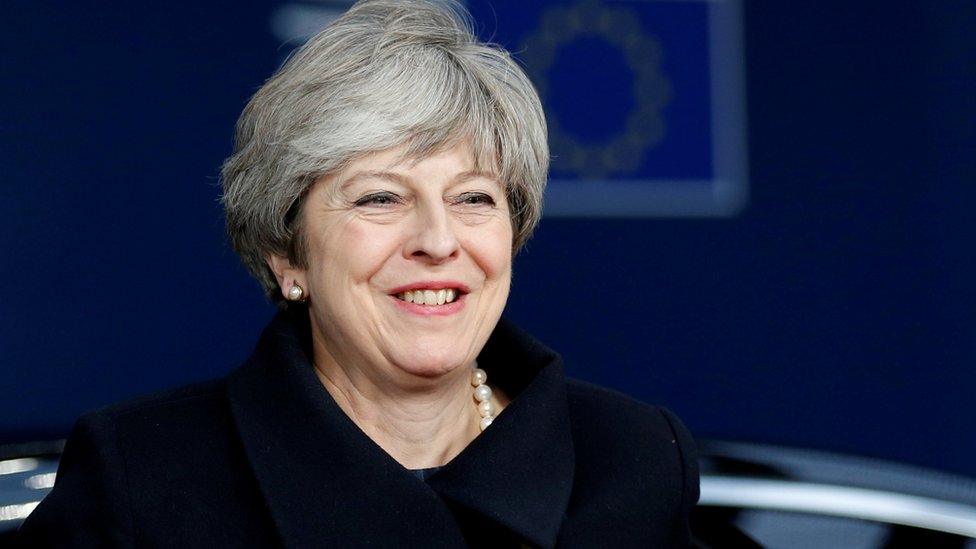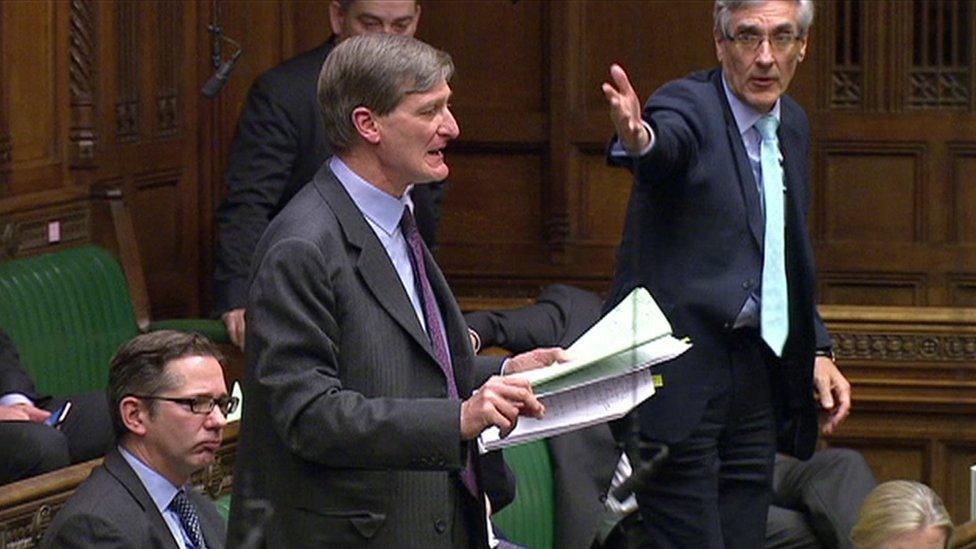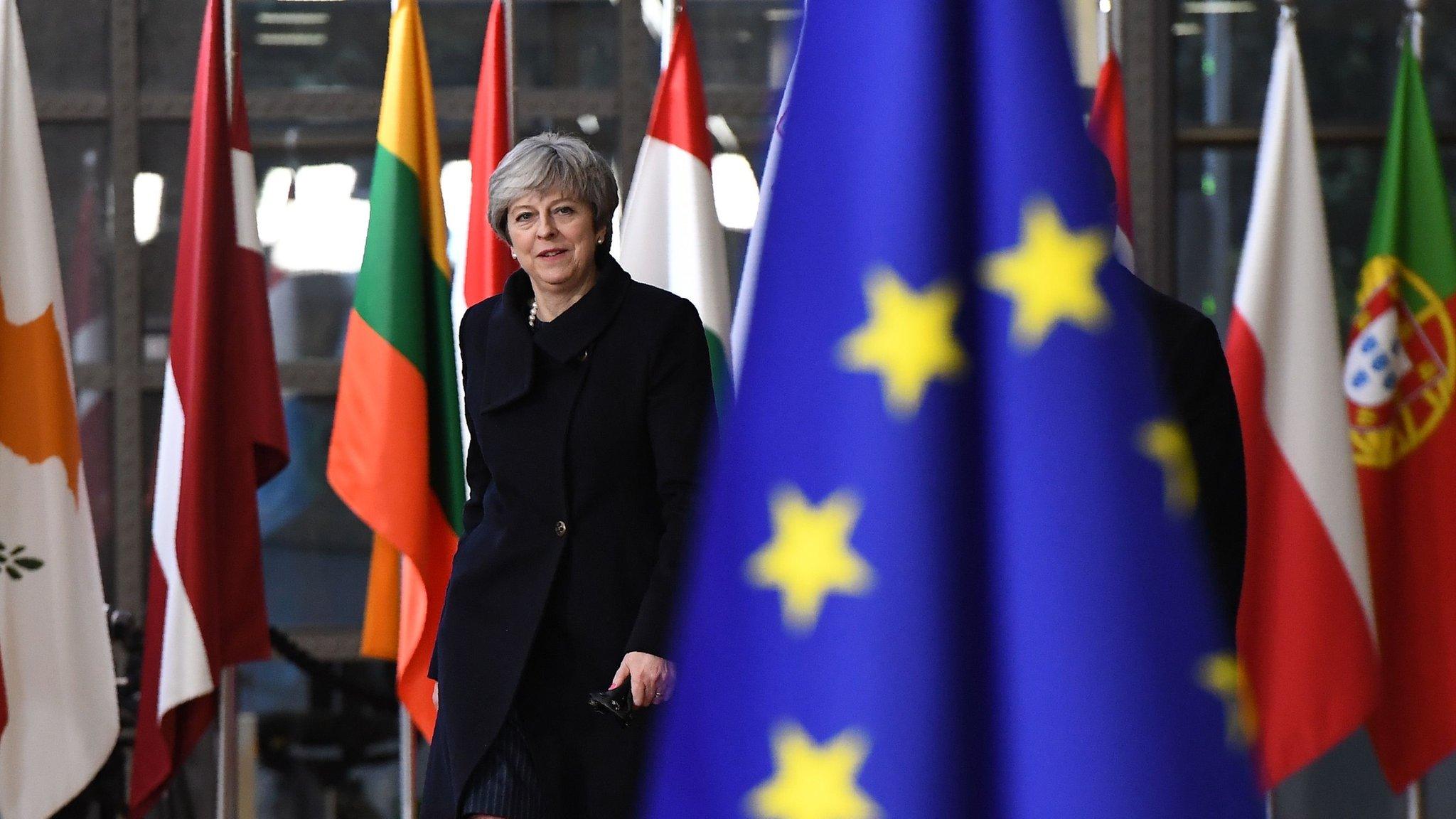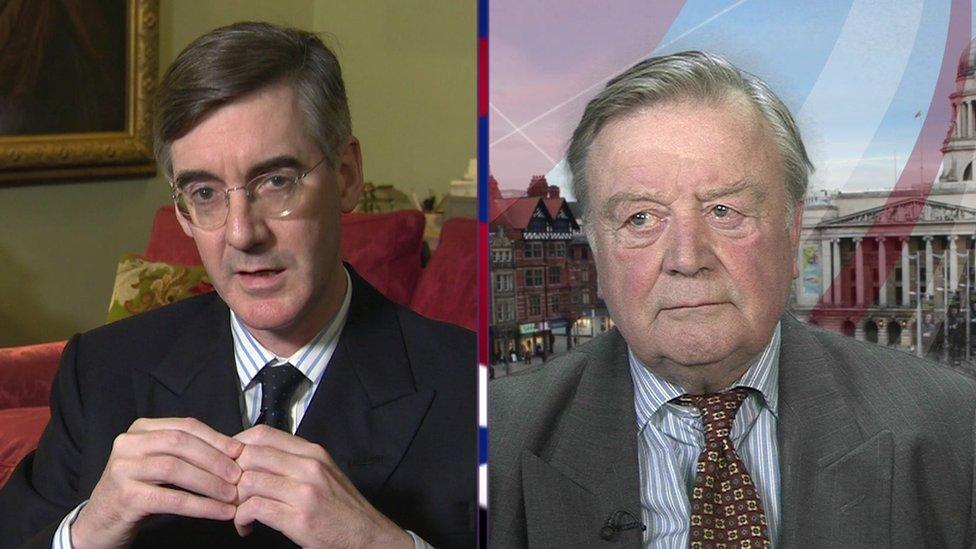Brexit: Theresa May says she 'will not be derailed'
- Published

The prime minister has said the government is "proving the doubters wrong" with its Brexit negotiations.
EU leaders agreed talks can move on to the next stage in the new year, shortly after Theresa May suffered her first Commons defeat on Brexit.
Writing in two Sunday papers, she vowed she would "not be derailed" from securing an "ambitious" deal.
Labour's Diane Abbott told the BBC the Brexit negotiations were "a mess" and were causing concern.
Writing in the Sunday Telegraph, external and Sunday Express, external, Mrs May said the last 10 days had "marked a watershed" in the Brexit process and that the government would now "begin to build that new, deep and special partnership" with the EU.


"This is the exciting part of the negotiations and there is no limit on our ambition and creativity," she said.
She said talks would now start on the implementation period for Brexit and the future of trading relationships.
"Amid all the noise, we are getting on with the job," she added.
Cabinet ministers are due to discuss their stance on the relationship they want with the EU - the UK's "end state" - in the coming days, but some ministers are thought to favour a closer alignment than others.
Foreign Secretary Boris Johnson, who was a leading voice in the referendum Leave campaign, has argued that the UK cannot mirror EU law in the long term, external.
The EU's guidelines for phase two of the negotiations, external say the UK would "continue to participate in the customs union and the single market during the transition" - a period of up to two years after the UK leaves the EU in March 2019 - and remain under the jurisdiction of the European Court of Justice.
Mr Johnson said if the UK ended up being forced to mirror EU laws "we would have gone from being a member state to a vassal state".
Diane Abbott says she does not want a second referendum on a final Brexit deal
He said the UK needed "something new and ambitious, which allows zero tariffs and frictionless trade" but maintains the freedom to "decide our own regulatory framework and own laws".
Speaking on BBC One's Andrew Marr Show, Work and Pensions Secretary David Gauke said any final trade deal between the UK and EU must "maximise" access to the EU market.
"We are not looking for an EEA-type (European Economic Area) arrangement so that, essentially, it's continuity as far as the end state is concerned," he said.
"But it is also important that we maximise our access to the European markets, that is really important to the UK."
'Obsessed with immigration'
Lib Dem Leader Sir Vince Cable told BBC Radio 5live it was difficult to say where the prime minister stood on what the UK's final "end state" relationship with the EU would be.
He told Pienaar's Politics that his impression, in his five years working with Mrs May during the 2010-2015 coalition government, when she was home secretary, was that she was "not terribly interested in economic matters".
He added that that "makes her quite difficult to place" on whether she would prefer a close single market-type arrangement, the so-called Norway model, or a "more distant" variant like Canada.
"I've no idea how she would react to that because she was preoccupied, I would say, obsessed with, immigration as an issue and that was her job".
Meanwhile, Shadow Home Secretary Diane Abbott was asked whether Labour would back a Norway-style deal for the UK.
Norway is not in the EU but has access to the single market, in return for a financial contribution and accepting the majority of EU laws.
She said Labour was "not conducting this negotiation" but it would not back anything "that damages jobs and the economy".
Pressed on whether the UK may have to make payments to get access to the single market, she replied: "We may have to do so, but we have to see how the Tories' negotiations go".
Death threats
The prime minister lost in the Commons earlier this week when MPs - including 11 from her own party - voted to give Parliament a legal guarantee of a vote on the final Brexit deal struck with Brussels.
Following the vote, there were calls for the Tory rebels to be deselected by the party and some received death threats.
Tory peers Baroness Altmann and Baroness Wheatcroft have written in the Observer, external that such threats "are worrying symptoms of the toxic atmosphere which has been created in our country" and the Lords would be "unlikely to be receptive to bullying over a restricted timetable or vigorous whipping to toe the party line".
But former chancellor Ken Clarke, who was among the 11 rebels, said reports of de-selection threats were "all nonsense".
"I think it's caused by all the rubbish that keeps appearing in the right-wing newspapers, which have completely lost their heads over the whole thing," he said.
- Published15 December 2017

- Published15 December 2017

- Published16 December 2017
